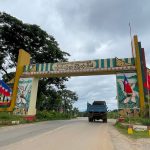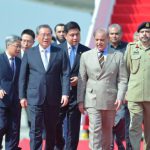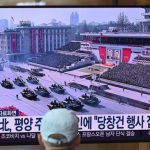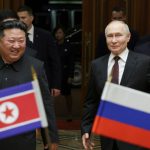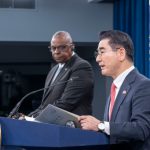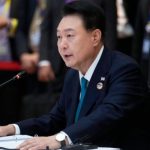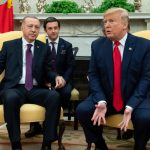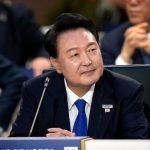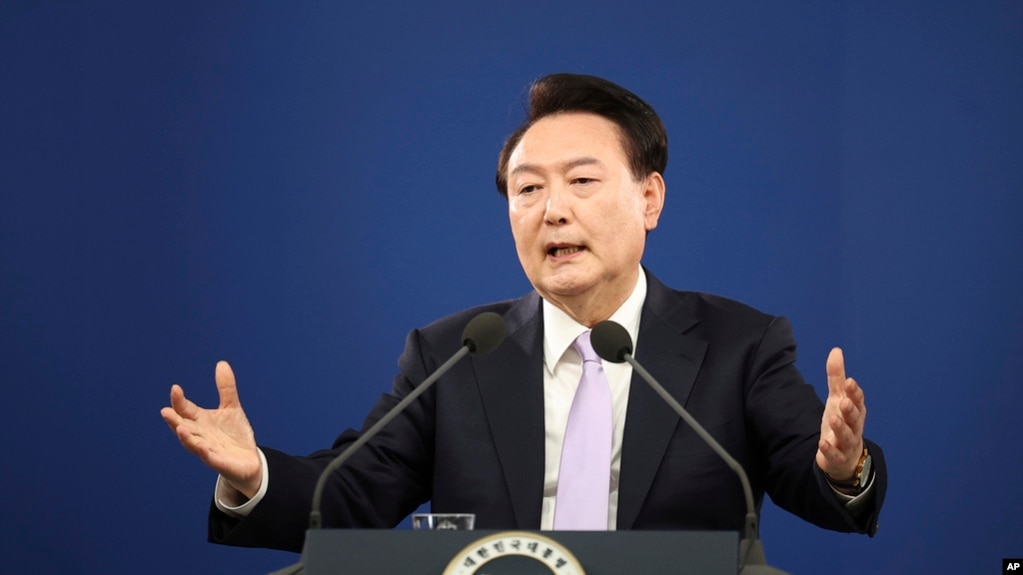
FILE – South Korean President Yoon Suk Yeol answers a reporter's question during a news conference at the Presidential Office in Seoul, South Korea, Nov. 7, 2024.
Seoul, South Korea —
Following U.S. President-elect Donald Trump’s electoral victory, world leaders have scrambled to secure calls and send delegations to strengthen ties with his team.
South Korean President Yoon Suk Yeol is taking a different approach: golf practice.
South Korean presidential officials confirmed to VOA that Yoon recently took up golf for the first time in eight years, specifically to prepare for diplomacy with Trump, who is known for bonding with world leaders over the sport.
It’s part of a broader response to the return of Trump, whose unpredictable "America First" approach poses unique economic and security challenges to South Korea.
The task may be especially difficult for Yoon, a conservative who leaned hard into a values-based alliance with the United States under President Joe Biden, pressing North Korea on human rights and projecting military strength.
Now, Yoon must contend with Trump, a famously transactional leader who has advocated for friendlier ties with North Korean leader Kim Jong Un and dismissed U.S.-South Korea military drills as costly "war games."
Trump has also consistently questioned the value of the seven-decade alliance, even hinting at a U.S. troop withdrawal if South Korea does not pay more.
Economic concerns add to South Korea’s unease, as officials worry Trump’s talk of imposing tariffs, and a renewed U.S.-China trade war could destabilize its export-driven economy.
Trump’s win has prompted soul-searching in South Korea, with many left-leaning commentators lamenting what they see as an over-reliance on an increasingly unreliable ally.
"Trump’s reelection heralds a tectonic shift in the U.S.-led international order, which South Korea has been largely dependent on for the past 70 years," read a recent opinion piece in the prominent Hankyoreh newspaper.
It warned that the Yoon administration, after having "placed all its eggs in the South Korea-U.S. alliance basket," will now "witness the devastating consequences of such blind belief."
Many conservative South Korean commentators also expressed concerns about the future of alliance, even while noting that Trump presents unique opportunities.
An editorial in the Chosun Ilbo, South Korea’s largest newspaper, said if Trump demands an excessive increase in defense cost-sharing, South Korea "could negotiate for independent nuclear armament in return."
Cost-sharing woes
Defense burden-sharing could become the first major alliance test once Trump returns – just as it was throughout his first term.
Just one day before Trump’s reelection, the United States and South Korea finalized a new agreement for Seoul to pay $1.19 billion in 2026 to support U.S. troops – an 8.3% increase from the previous year.
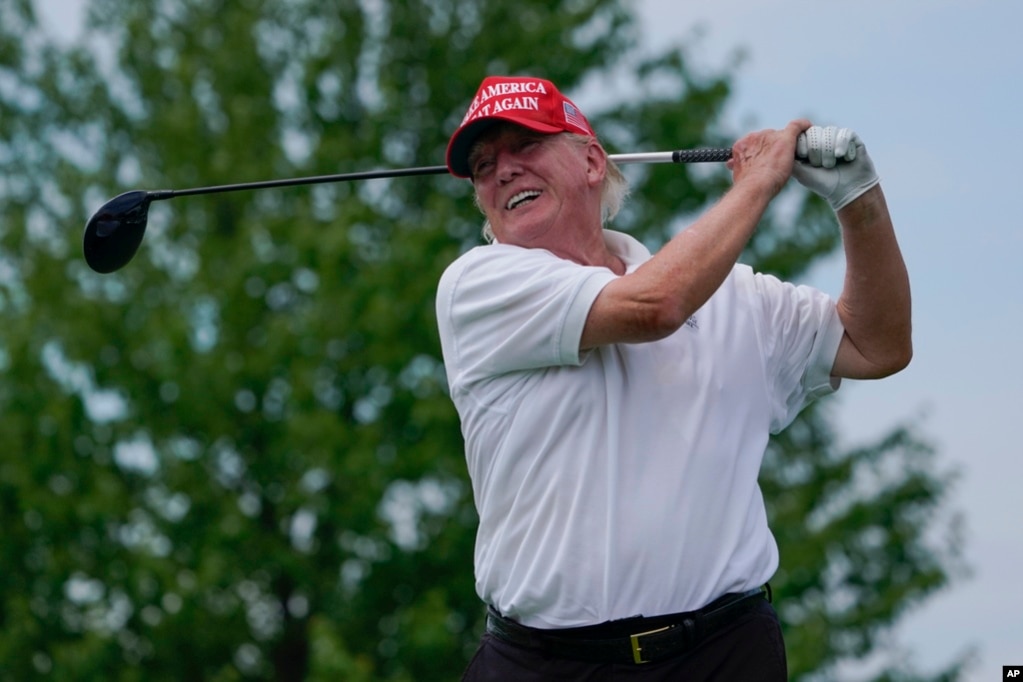
FILE – Former President Donald Trump plays during the pro-am round of the Bedminster Invitational LIV Golf tournament in Bedminster, NJ., on July 28, 2022.
The six-year deal was widely seen as an attempt to "Trump-proof" the alliance. However, some analysts worry it may have the opposite effect, possibly prompting Trump to overturn the agreement unilaterally or impose new financial demands.
For example, Trump could require that South Korea cover costs for joint military exercises or the visits of "strategic assets," such as bombers and aircraft carriers, said Park Won-gon, a professor at Seoul’s Ewha University.
Such exercises and deployments were recently expanded – a key reassurance for South Korea, which relies on the U.S. nuclear umbrella for protection against nuclear-armed North Korea.
If Trump demanded payment for these activities, Park said, it would "inevitably weaken the overall framework of extended deterrence."
Abandonment concerns
Trump has long been a critic of U.S.-South Korea military exercises, even scaling them back unexpectedly after his first summit with Kim in 2018. Many in South Korea now worry he could pursue renewed diplomacy with Pyongyang that sidelines Seoul’s security interests.
During his first term, Trump reserved his strongest criticism for North Korea’s intercontinental ballistic missile launches, which threaten the U.S. mainland, while downplaying short-range tests that pose a more immediate risk to South Korea.
Analysts also fear that Trump and Kim could resume talks that highlight their warm relations and project diplomatic progress, without advancing denuclearization in any meaningful way.
"In that case, North Korea will be recognized as a de facto nuclear state, which is a development that South Korea will find difficult to accept," wrote Lee Sang-hyun, a senior research fellow at Seoul’s Sejong Institute, in an analysis of Trump’s reelection.
Louder nuclear calls
These concerns have emboldened voices within South Korea calling for an independent nuclear arsenal – a proposal that has moved into the mainstream under Yoon’s administration.
The latest high-profile figure to embrace the idea is Park Jin, who served as Yoon’s foreign minister until earlier this year. In an interview this week with a South Korean news outlet, Park stated that South Korea must "seriously consider all possible security options, including potentially acquiring nuclear capabilities," if Trump resumes threats to withdraw U.S. troops.
South Korea’s nuclear armament also has gained traction in U.S. policy circles, particularly with a growing number of former Trump officials. Trump himself even proposed the idea during his first presidential campaign, though not as president.
But significant barriers remain. Such a move would likely provoke a strong reaction from North Korea and China, potentially endangering South Korea’s security during any "breakout" period. Additionally, South Korea could face severe economic sanctions if it decided to go nuclear.
Golf diplomacy
Together, these challenges present a major diplomatic test for Yoon, who hopes that spending time on the golf course with Trump will offer a chance to address them one on one.
Such an approach would emulate that of Japan’s late former Prime Minister Shinzo Abe, who formed a close bond with Trump and tried to smooth bilateral frictions, in part by playing golf.
It’s a strategy that makes sense, according to Park, the Seoul-based professor, who stressed the importance of personal relationships and proactive engagement when dealing with Trump.
"For Trump, it’s all about who he listens to," Park said. "He tends to repeat what those close to him feed him, so we need to leverage close relationships to convey our stance."
By:VOA
